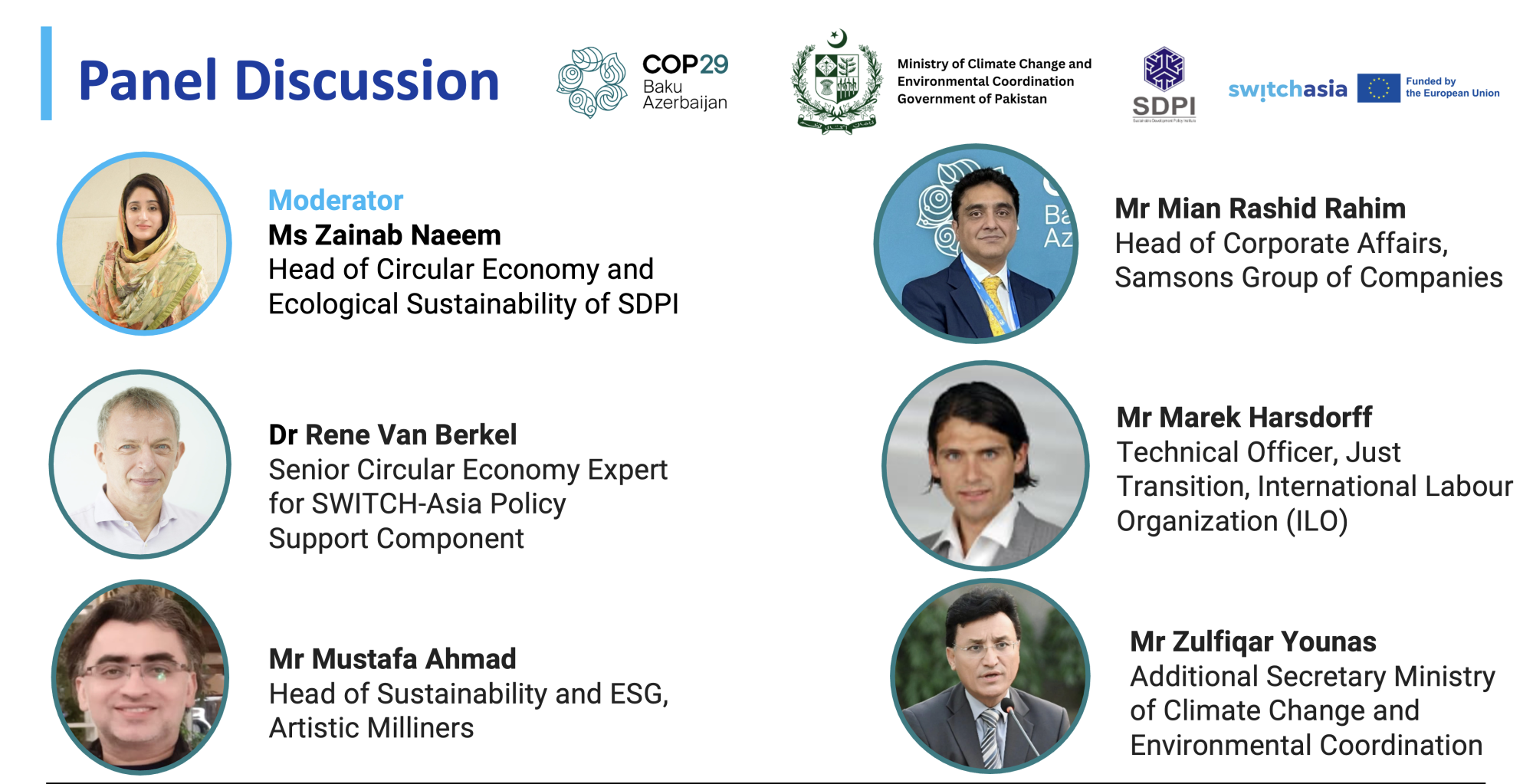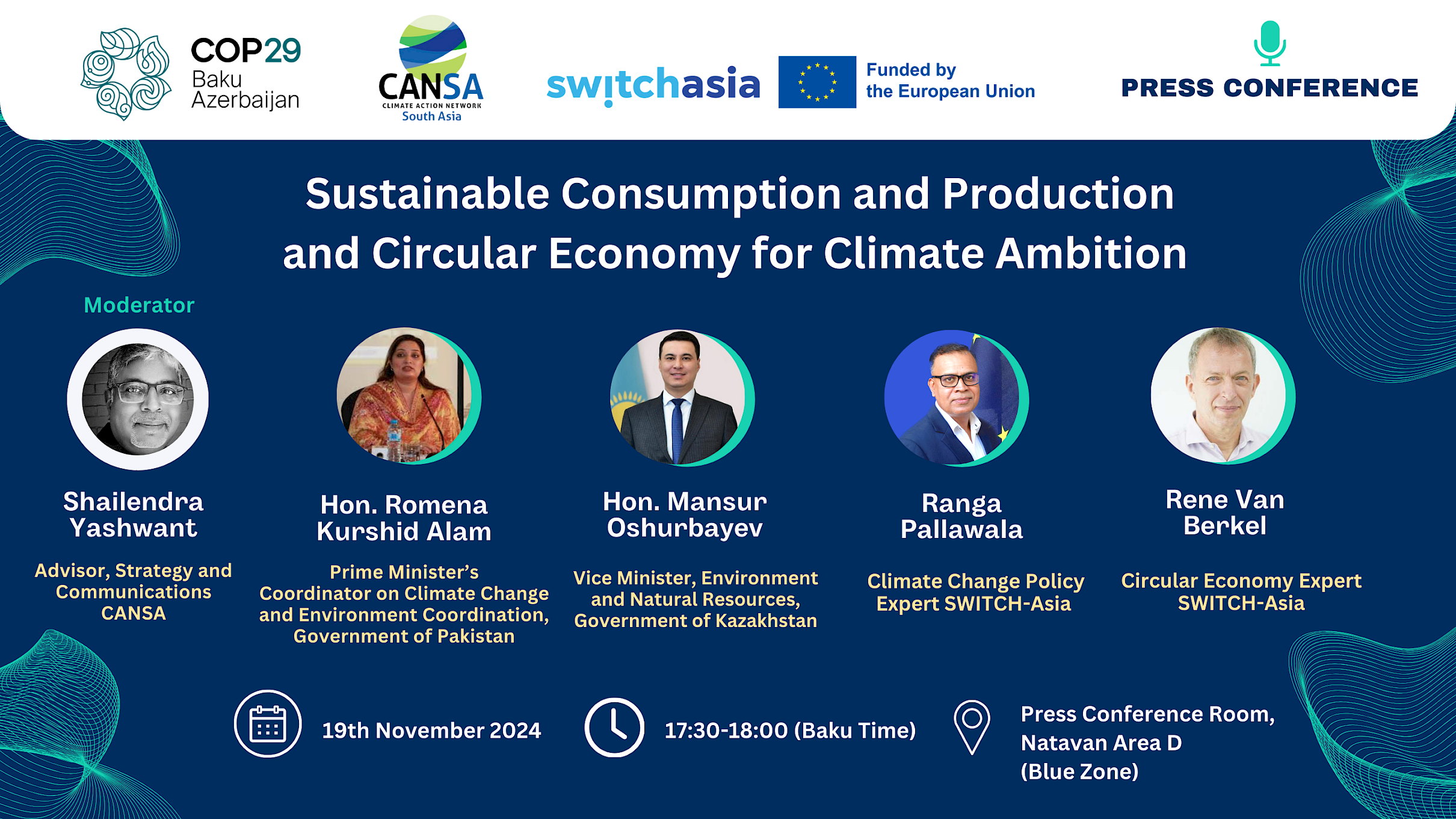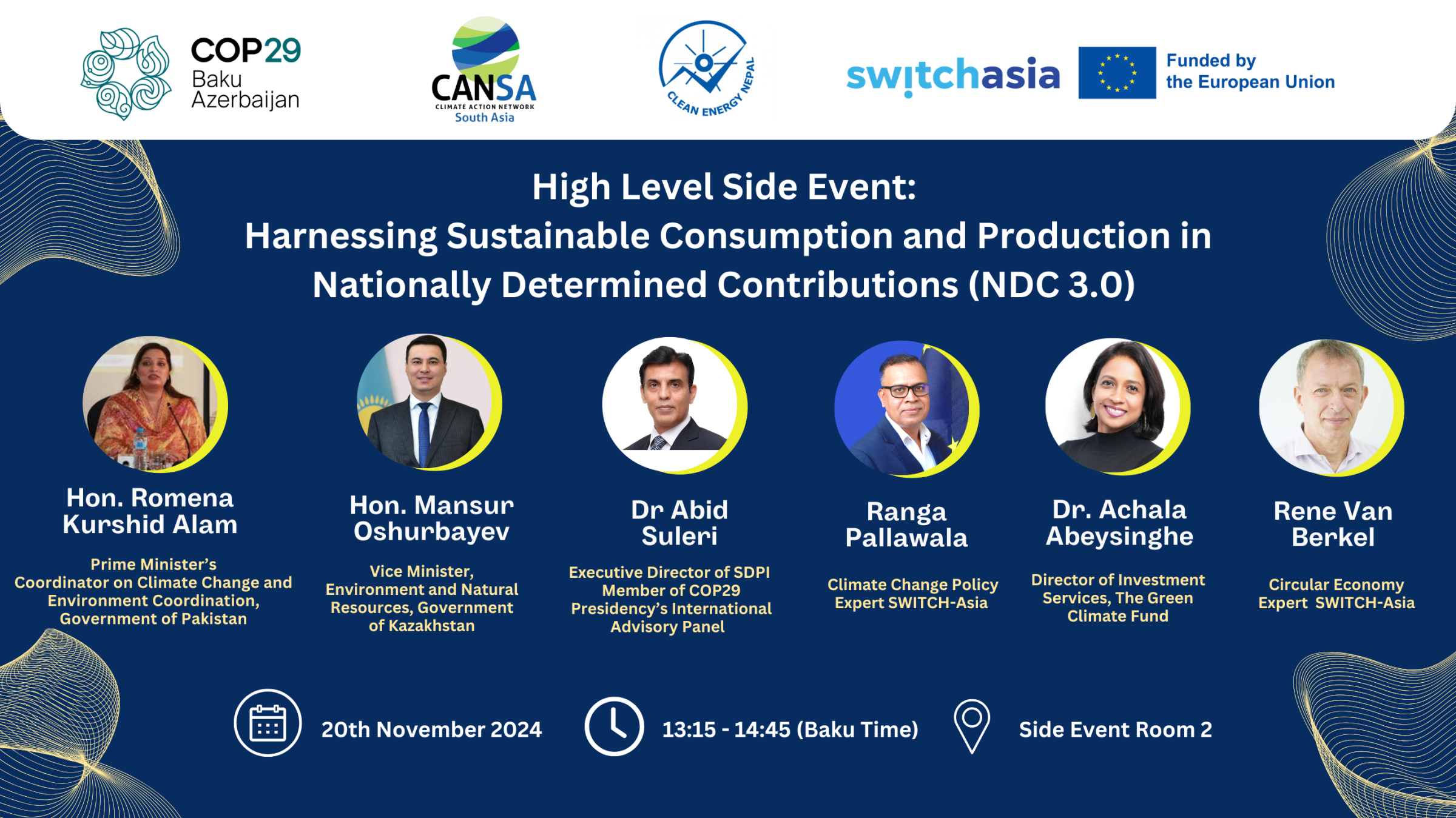
WHEN: 13, 18, 20 November 2024 I WHERE: Baku, Azerbaijan I Official website
Background
One of the key agenda items in the COP 29 at Baku is Global Stock Take (GST) agreed in the Paris Agreement aiming towards higher ambition and countries to frame their nationally determined contributions by March 2025. This stocktaking process is aimed at informing the next round of NDCs in order to increase their level of ambition; it also offers the opportunity to evaluate the need for enhanced action and support. Unsustainable consumption and production patterns lie at the core of the triple planetary crises encompassing climate change, biodiversity and nature loss, and pollution. The scientific community has firmly established the link between climate change and material consumption. According to the Global Resource Outlook 2024 report of the International Resource Panel (IRP), resource use has tripled in the last five decades and is expected to continue to increase; resource extraction has increased by nearly 400% since 1970 and is still growing by 2.3% per year; resource extraction and processing are responsible for over 60% of planet-warming emissions and 90% of land-related biodiversity loss; high-income countries use six times more materials per capita than low-income countries; bold policy action is needed to phase out unsustainable activities and it is possible to decouple economic growth from environmental impacts and resource use. The report concludes that resources efficiency through sustainable consumption and production and circular economy are essential to the implementation of the agenda 2030 and multilateral environmental agreements. This position has since been anchored in the universally agreed Pact for the Future, which establishes circular economy as a pathway for sustainable consumption and production and climate action. The recently published Global Stock Take (GST) report, as part of the Paris Agreement under the United Nations Framework Convention on Climate Change (UNFCCC), has concluded that, based on current Nationally Determined Contributions (NDCs), there is a significant emissions gap of 20.3–23.9 Gt CO2 equivalent by 2030 to stay on track with limiting global warming to 1.5 °C. The UNEP emissions gap report 2024 emphasises on the need to cut down greenhouse gases, and deliver on the Paris climate targets, through the next round of Nationally Determined Contributions (NDCs), due for submission in early 2025 ahead of COP30. Cuts of 42 per cent are needed by 2030 and 57 per cent by 2035 to get back on track for 1.5°C. A failure to increase ambition in these new NDCs and start delivering immediately would put the world on course for a temperature increase of 2.6-3.1°C over the course of this century. This would bring debilitating impacts to people, planet and economies. In order to deliver on this potential, sufficiently ambitious and properly-resourced NDCs would need to be backed urgently by a whole-of-government approach, measures that maximize socioeconomic and environmental co-benefits, enhanced international collaboration that includes reform of the global financial architecture, strong private sector action and a minimum six-fold increase in mitigation investment.
The UNFCCC GST report also underscores that achieving net-zero emissions will vary from country to country, necessitating a comprehensive, nationwide effort in all countries to chart pathways towards net-zero CO2 or greenhouse gas (GHG) emissions. While these steps are critical for GHG mitigation, it's essential to ensure a broader "societal transformation" to guarantee that investments in these initial measures yield the desired results. Given the pressing need for increased ambition in climate action, it becomes crucial to leverage all available avenues without compromising sustainable development. Sustainable Consumption and Production (SCP) and Circular Economy emerge as compelling options for harnessing climate change co-benefits.
Contributing Events
13 November 2024
Title: Pacific Leadership for Climate Justice: Ambition, Finance, and Global Action on the Triple Planetary Crisis (Open Roundtable)
Organized by the Pacific Islands Climate Action Network (PICAN)
Venue: Moana Blue Pacific Pavilion
Time: 13:00 – 14:00
____________________________________
13 November 2024
Title: Peer-to-peer exchange event for the Pacific region on the current state and the perspectives of capacity building under the Enhanced Transparency Framework
Organized by the Governments of Fiji and Vanuatu
Venue: Moana Blue Pacific Pavilion
Time: 14:00 – 15:00
____________________________________
18 November 2024
Download Agenda
Title: Sustainable Consumption and Production (SCP) and Circular Economy (CE) to enhance climate ambitions: Pakistan Perspectives for NDC 3.0 and LT-LEDS
Venue: Pakistan Pavilion, UNFCCC COP29 Venue, Baku
Time: 9:30 – 11:00

19 November 2024
Official Media Briefing – Why Sustainable Consumption and Production (SCP) and Circular Economy (CE) are indispensable to climate ambition
Venue: Natavan Area D, Press 2, UNFCCC COP29 Venue, Baku
Time: 17:30 – 18.00 (Baku) I Recording available HERE

____________________________________
20 November 2024
-
Download Agenda
Title: Harnessing Sustainable Consumption & Production in Nationally Determined Contributions (NDC 3.0)
Official Side-Event in collaboration with Climate Action Network South Asia (CANSA) and Clean Energy Nepal
Venue: UNFCCC Side Event Room 2
Time: 13:15 -14:45




